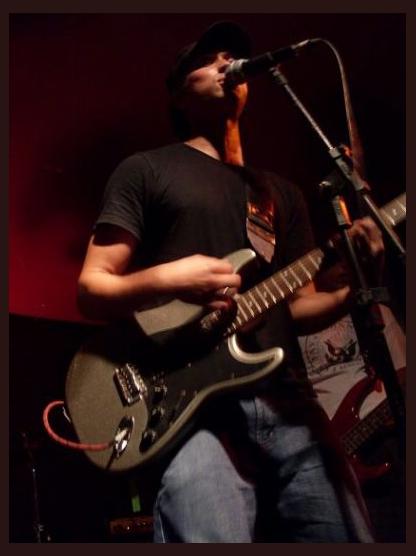 Mestre Dos Magros
Mestre Dos Magros
Mestre Dos Magros: Unveiling the Enigma Behind the Song "Alto Retrato"
Mestre Dos Magros, the enigmatic Brazilian music band, emerged from the vibrant streets of Rio de Janeiro in the early 1990s, leaving an indelible mark on the city's musical landscape. Their enigmatic nature, coupled with their provocative lyrics and haunting melodies, captivated audiences and sparked both controversy and acclaim.
Challenges and Controversies
From the outset, Mestre Dos Magros faced an uphill battle against censorship and societal disapproval. Their lyrics, often laced with explicit language and raw sexuality, challenged prevailing norms and pushed the boundaries of artistic expression. The band's confrontational stance drew criticism from conservative quarters, resulting in banned live performances and the confiscation of their albums.
Undeterred, the band persevered, embracing their outsider status and using their music as a platform for social and artistic discourse. Their songs became a voice for the marginalized and voiceless, addressing issues of poverty, inequality, and the complexities of human existence.
Discography
Over the course of their career, Mestre Dos Magros released a string of critically acclaimed albums, each showcasing their unique blend of hip-hop, samba, and experimental electronica:
* Mestre Dos Magros (1997): Their debut album introduced their signature sound and featured groundbreaking tracks such as "Alto Retrato" and "Bota Pra Fuder."
* O Último Pecado (2000): This album solidified their status as a musical force, delving deeper into themes of love, loss, and redemption.
* A Divina Comédia (2003): Inspired by Dante's epic poem, this album explored the intricacies of human suffering and the search for meaning.
* Desastre Natural (2006): A reflection on the state of the world, this album addressed issues of environmental degradation and social injustice.
* O Ódio Venceu (2011): A stark and uncompromising album that confronted the rise of hatred and intolerance in Brazilian society.
Members
The core members of Mestre Dos Magros were:
* Eduardo "Magrão" Brechó (Vocals, Guitar): The band's enigmatic frontman, known for his raw and provocative lyrics.
* Rodrigo "Digão" Araújo (Bass): A skilled bassist and co-songwriter, providing the rhythmic backbone for the band's sound.
* Samuel "Macalé" Rosa (Drums): The driving force behind Mestre Dos Magros' distinctive percussive grooves.
"Alto Retrato": A Cultural Icon
Among Mestre Dos Magros' many acclaimed songs, "Alto Retrato" stands as a true anthem. Its haunting melody, provocative lyrics, and raw emotional intensity have resonated with generations of Brazilians. The song explores the complexities of love, desire, and the bittersweet nature of memory.
Legacy
Mestre Dos Magros' legacy extends beyond their music. As pioneers of Brazilian hip-hop and experimental electronica, they paved the way for a new generation of artists who dared to challenge conventions and push the boundaries of artistic expression. Their music continues to inspire and provoke, leaving an indelible mark on Brazilian culture.
Mestre Dos Magros, the enigmatic Brazilian music band, emerged from the vibrant streets of Rio de Janeiro in the early 1990s, leaving an indelible mark on the city's musical landscape. Their enigmatic nature, coupled with their provocative lyrics and haunting melodies, captivated audiences and sparked both controversy and acclaim.
Challenges and Controversies
From the outset, Mestre Dos Magros faced an uphill battle against censorship and societal disapproval. Their lyrics, often laced with explicit language and raw sexuality, challenged prevailing norms and pushed the boundaries of artistic expression. The band's confrontational stance drew criticism from conservative quarters, resulting in banned live performances and the confiscation of their albums.
Undeterred, the band persevered, embracing their outsider status and using their music as a platform for social and artistic discourse. Their songs became a voice for the marginalized and voiceless, addressing issues of poverty, inequality, and the complexities of human existence.
Discography
Over the course of their career, Mestre Dos Magros released a string of critically acclaimed albums, each showcasing their unique blend of hip-hop, samba, and experimental electronica:
* Mestre Dos Magros (1997): Their debut album introduced their signature sound and featured groundbreaking tracks such as "Alto Retrato" and "Bota Pra Fuder."
* O Último Pecado (2000): This album solidified their status as a musical force, delving deeper into themes of love, loss, and redemption.
* A Divina Comédia (2003): Inspired by Dante's epic poem, this album explored the intricacies of human suffering and the search for meaning.
* Desastre Natural (2006): A reflection on the state of the world, this album addressed issues of environmental degradation and social injustice.
* O Ódio Venceu (2011): A stark and uncompromising album that confronted the rise of hatred and intolerance in Brazilian society.
Members
The core members of Mestre Dos Magros were:
* Eduardo "Magrão" Brechó (Vocals, Guitar): The band's enigmatic frontman, known for his raw and provocative lyrics.
* Rodrigo "Digão" Araújo (Bass): A skilled bassist and co-songwriter, providing the rhythmic backbone for the band's sound.
* Samuel "Macalé" Rosa (Drums): The driving force behind Mestre Dos Magros' distinctive percussive grooves.
"Alto Retrato": A Cultural Icon
Among Mestre Dos Magros' many acclaimed songs, "Alto Retrato" stands as a true anthem. Its haunting melody, provocative lyrics, and raw emotional intensity have resonated with generations of Brazilians. The song explores the complexities of love, desire, and the bittersweet nature of memory.
Legacy
Mestre Dos Magros' legacy extends beyond their music. As pioneers of Brazilian hip-hop and experimental electronica, they paved the way for a new generation of artists who dared to challenge conventions and push the boundaries of artistic expression. Their music continues to inspire and provoke, leaving an indelible mark on Brazilian culture.